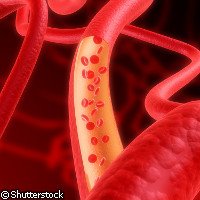EU findings open door to better drugs for fight against heart attacks and strokes
Researchers partially funded by the EU have made discoveries that could open the door to the development of new and better-targeted drugs for patients at risk of strokes or heart attacks. Writing this week in the journal Cell, the results are the first to show the reduction of levels of a specific blood clotting agent involved in the formation of harmful clots within blood vessels without a corresponding increase in the risk of excessive bleeding from surface wounds. The E-RARE ('ERA-Net for research programmes on rare diseases') project contributed to the findings. E-RARE is funded under the 'Coordination of research activities' Thematic area of the EU's Sixth Framework Programme (FP6) to the tune of EUR 2.18 million. The project's main aim is to coordinate existing programmes on rare disease research and to prepare joint and strategic activities linking scattered funding and fragmentation between national research programmes. E-RARE has nine partners from six EU Members States plus Israel and Turkey. The researchers discovered that the molecule polyphosphate can activate a blood clotting agent called 'factor XII' which is involved in the formation of harmful clots within blood vessels. However, factor XII is not involved in surface wound healing. In fact, a lack of the agent is not associated with any hemorrhagic disorder in humans or mice. It is also considered to be redundant for the normal stoppage of bleeding or haemorrhaging. Drugs which reduce the risk of dangerous blood clot formation within blood vessels (thrombosis) lower the risk of heart attacks or strokes. Thrombosis may occur in the venous or arterial circulation causing a heart attack or stroke - the most common causes of death in the developed world. Medication designed to combat thrombosis is called anticoagulant, and have side effects. In mammals, blood clotting involves both cellular and protein components, provided by platelets and coagulation factors. This leaves those taking anticoagulants at risk of severe, or even lethal, bleeding if they injure themselves in any way. 'The challenge in designing treatments to reduce thrombosis is getting the balance right. We need to find an appropriate drug level or target which causes enough anticoagulation to prevent risk of heart attack or stroke but with minimal bleeding side effects,' explained Nicola Mutch from the University of Leeds in the UK. 'Our work suggests polyphosphate or factor XII could be potential new targets,' continued Dr Mutch, 'as neither seems to affect our ability to heal naturally, so drugs based on these molecules could offer a major improvement on existing treatments.'



